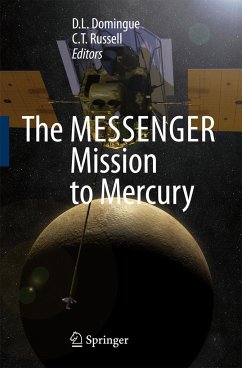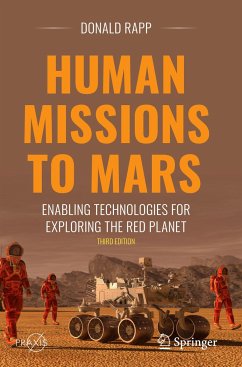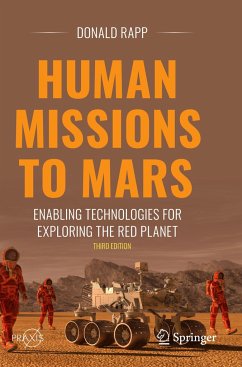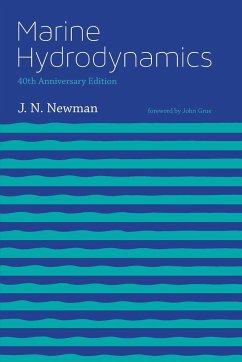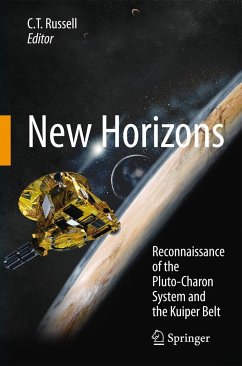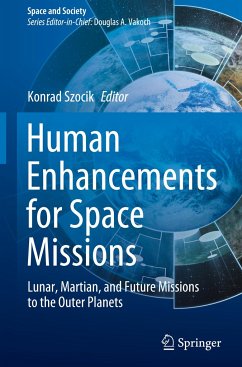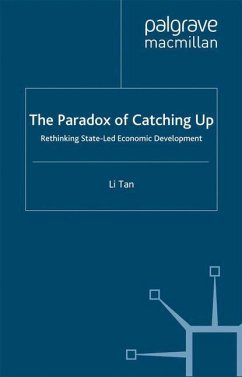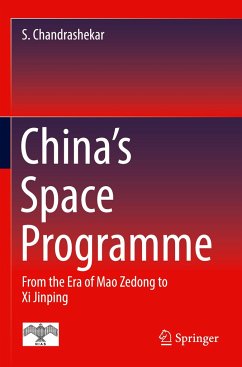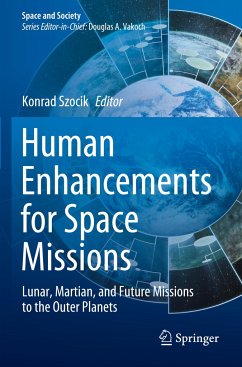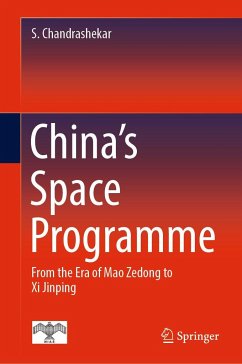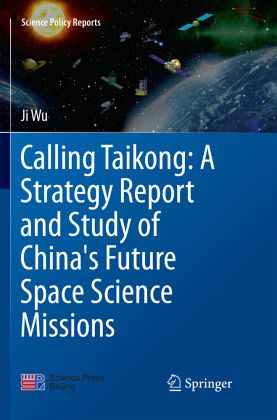
Calling Taikong: A Strategy Report and Study of China's Future Space Science Missions
Versandkostenfrei!
Versandfertig in 6-10 Tagen
76,99 €
inkl. MwSt.
Weitere Ausgaben:

PAYBACK Punkte
38 °P sammeln!
This book describes the status quo of space science in China, details the scientific questions to be addressed by the Chinese space science community in 2016-2030, and proposes key strategic goals, space science programs and missions, the roadmap and implementation approaches. Further, it explores the supporting technologies needed and provides an outlook of space science beyond the year 2030."Taikong" means "outer space" in Chinese, and space science is one of the most important areas China plans to develop in the near future. This book is authored by Ji Wu, a leader of China's space science ...
This book describes the status quo of space science in China, details the scientific questions to be addressed by the Chinese space science community in 2016-2030, and proposes key strategic goals, space science programs and missions, the roadmap and implementation approaches. Further, it explores the supporting technologies needed and provides an outlook of space science beyond the year 2030.
"Taikong" means "outer space" in Chinese, and space science is one of the most important areas China plans to develop in the near future. This book is authored by Ji Wu, a leader of China's space science program, together with National Space Science Center, Chinese Academy of Sciences, a leading institute responsible for planning and managing most of China's space science missions. It also embodies the viewpoints shared by many space scientists and experts on future space science development. Through this book, general readers and researchers alike will gain essential insightsinto the current developments and future prospects of space science in China. Government decision-makers will also find the book a useful reference for strategies and planning in the field of space science.
"Taikong" means "outer space" in Chinese, and space science is one of the most important areas China plans to develop in the near future. This book is authored by Ji Wu, a leader of China's space science program, together with National Space Science Center, Chinese Academy of Sciences, a leading institute responsible for planning and managing most of China's space science missions. It also embodies the viewpoints shared by many space scientists and experts on future space science development. Through this book, general readers and researchers alike will gain essential insightsinto the current developments and future prospects of space science in China. Government decision-makers will also find the book a useful reference for strategies and planning in the field of space science.



